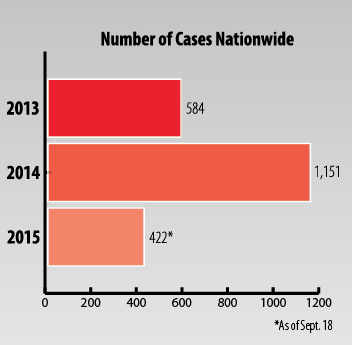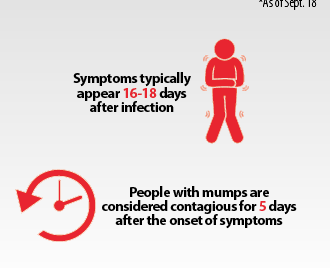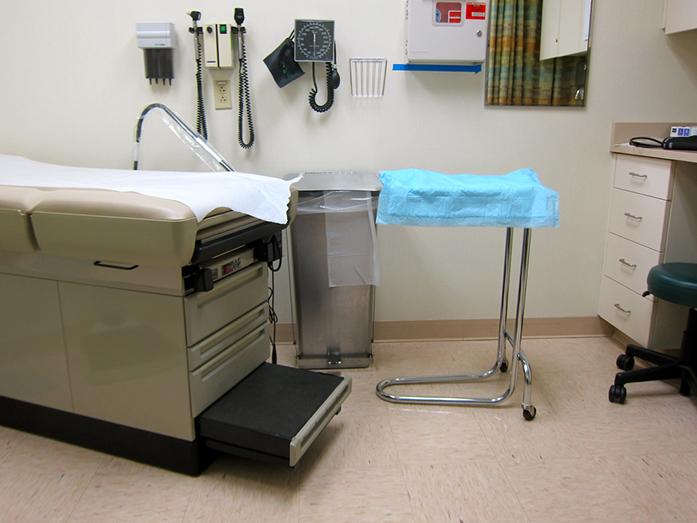Midterms may not be all students have to worry about in the coming weeks.
After the appearance of mumps at the University of Iowa in July and six cases reported in August, there are now 41 students on campus who have tested positive for the disease. More tests were pending at the time of publication.
“The last week has been busy,” said Lisa James, the associate director for clinical outreach at UI Student Health and Wellness. “The week before that, it had kind of slowed down, and we had almost five or six days without seeing or testing anyone. And then we all of a sudden, we tested six or seven.”
James said several steps could prevent the spread of mumps. She has contacted everyone infected and anyone who might have been exposed to the disease, telling them to watch for symptoms.
Mumps may be confused with a cold because of their common symptoms — a stuffy nose, sore throat, and fatigue, James said. However, the hallmark characteristic of mumps is soreness or tenderness of the jaw.

Mumps can last for five to seven days. Those infected should be isolated for five days because mumps can spread through respiratory droplets. If people cough into their hands and touch something, the disease could be spread through that, James said.
She recommended using hand sanitizer often.
UI freshman Emily Brooks followed that logic and showed little concern.
“I’m not really concerned just because if you practice good hygiene, I don’t think it’ll spread to you as easily,” she said.
She said she had not seen anyone in her dorm infected with mumps, but she would still be dismayed if she actually contracted the disease.
“That wouldn’t be positive,” she said. “That’s five days you can’t go to class or be on campus.”
UI administration is also taking further steps for students in close quarters.
UI Vice President for Student Life Tom Rocklin said resident assistants know the symptoms of mumps and how to respond the disease. Students can have meals delivered to their rooms so they can stay isolated while infected.

“The health and safety of students is always a concern, but at this point the mumps seems to be a manageable public-health issue,” wrote Rocklin in an email.
He said his department has remained in close contact with the Centers for Disease Control & Prevention, the Iowa Department of Public Health, and the Johnson County Department of Public Health.
UI students are required to have two MMR vaccines. Some infected have both, James said, but they are only about 88 percent effective. A third MMR has not been laid out as a recommendation yet.
The University of Illinois-Urbana/Champaign has, however, provided a third MMR for its students for free after a major outbreak on its campus.
“People come to town for football games, and they go to away football games,” James said. “The Illinois game is this coming weekend, you know, and there’s so much mumps in Illinois, so I don’t know what that will bring.”



